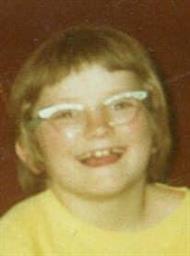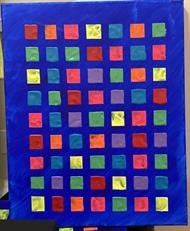Research has shown that mental illness, trauma and substance use are all connected—it’s no surprise when someone who has experienced physical, sexual or emotional abuse has a mental health or substance use issue.
This is the story of Annmarie, who experienced childhood trauma and abuse at the hands of her former spouse. Now, at almost 60 years of age, Annmarie is an active member of the community, helping others access support services, and is also a member of the BC Mental Health and Substance Use Services Partnerships in Care committee. She looks back on her life with a better understanding of how trauma affected her mental health.
Originally from Saint John, New Brunswick, Annmarie was born into a household where alcoholism and abuse were impossible to avoid. Her father, a war veteran, drank heavily, and her mother would often have to flee the house with Annmarie and her seven siblings when he became aggressive.
At aged two, Annmarie was sexually abused by a relative. This abuse continued until she was 10 years old.
“I remember telling my sister when I was four years old that I had been raped,” says Annmarie. “We were lying in bed talking, and when I told her what happened, she said not to say anything or my father would have killed the person who did it. I remember my mother and Granny talking about the same relative being accused of molesting another child. They both said they didn’t believe it. I knew I couldn’t talk about what happened to me, and I carried that trauma throughout my entire childhood.”
 As a child, Annmarie loved nature. She would escape from the troubles at home by spending lots of time in the woods and at the beach. She remembers hiding out in her favourite apple tree, reading books, singing, praying and talking to God. Sometimes, when her thoughts got darker, she would contemplate ending her life, but something within her kept her safe.
As a child, Annmarie loved nature. She would escape from the troubles at home by spending lots of time in the woods and at the beach. She remembers hiding out in her favourite apple tree, reading books, singing, praying and talking to God. Sometimes, when her thoughts got darker, she would contemplate ending her life, but something within her kept her safe.
"Any time I thought of getting lost in the forest, I would hear voices telling me to stay on the path, to stay safe. I don’t know what that was, but I’m grateful.”
“I used to go for long walks, and when I got to the beach, I would think about harming myself,” says Annmarie. “But I had visions of hammerhead sharks that stopped me going into the waves. It was the same in the woods. Any time I thought of getting lost in the forest, I would hear voices telling me to stay on the path, to stay safe. I don’t know what that was, but I’m grateful. I guess I’ve always been spiritual and found healing in nature.”
Annmarie’s parents divorced when she was 11, and from that point, she had to fend for herself. “When we moved to Moncton, New Brunswick, my Mom took me aside and said I had to look after myself,” Annmarie remembers. “I took myself to doctor appointments, to the library, the dentist, all by myself. I was so young.”
Two years later, when Annmarie was 12, her father died by suicide.
“One night, my Dad phoned us, and I told him to call back when he was sober,” she says. “The next morning, the RCMP showed up at our house and told us he was dead. My sister, in front of my mother and the police, beat the living daylights out of me. She thought it was my fault my Dad died. When we went to the funeral, I felt like everyone else thought it was my fault too. I started to believe that.”
Over the years, her sister’s violence became worse. Eventually, Annmarie left home and stayed with a family down the street before moving to go to college.
 Annmarie has always been creative. She attended the Nova Scotia College of Art and Design, as well as Dalhousie University and St Mary’s in Halifax, taking pottery and jewelry-making classes. During this time, she had a job running a kitchen pub in Nova Scotia. This is where she met her spouse.
Annmarie has always been creative. She attended the Nova Scotia College of Art and Design, as well as Dalhousie University and St Mary’s in Halifax, taking pottery and jewelry-making classes. During this time, she had a job running a kitchen pub in Nova Scotia. This is where she met her spouse.
“We met on his first day in Canada when he immigrated here. I hired him in the kitchen; we dated for two years and then got married. The violence and abuse started as soon as we started dating. Now I know I should have let him go. The violence just got worse once we were married.”
Annmarie recalls incidents of verbal and physical violence, which she now knows impacted her mental health.
“I would make a beautiful meal for us, and he would throw the whole plate at my face,” she says. “He also threatened to kill himself if I left him, and that paralyzed me. After my father, I didn’t want to be responsible for the death of another person.”
When Annmarie had her son a year after her wedding, she knew she had to leave. After an assault with a belt that left her with 11 stitches, she and her son drove to a women’s shelter in Saint John. From there, she moved to Yellowknife, where things got better until many years later when her spouse became violent one last time. At that point, Annmarie also had a daughter and she knew she needed help. They moved to Halifax where she got counselling and access to supported housing.
“This was the first time I got help. I began to overcome what was, at the time, very severe depression,” she says. “There were times where I wouldn’t go outside for weeks, unless it was to the store or to a doctor. That in itself was a very traumatic experience.”
"Getting help and helping others gave me a purpose and direction.”
But as she got better, Annmarie began working as a peer supporter, helping others to access services and resources. This sense of giving back enabled her to reflect on her own life and challenges.
“Up until Halifax, I wasn’t functioning correctly,” says Annmarie. “I had depression and undiagnosed diabetes, which meant I was tired and short-tempered all the time. I was also carrying the weight of trauma, which I had never dealt with. I couldn’t parent effectively. My children are both very smart and I feel bad I let them down when I got ill. Getting help and helping others gave me a purpose and direction.”
Annmarie moved to Nanaimo, B.C. five years ago to be close to her children after recovering in Halifax for 17 years. At this point, it was revealed that she had lithium poisoning, which sparked a change in her medication. On reflection, she understands this impacted her ability to function.
“I’m now on medication for bipolar, PTSD and psychosis—I feel like a normal person again,” she says.
Annmarie is very active as a volunteer in mental health programs, and says that these roles have helped her greatly. She has participated in programs at Healthy Minds Cooperative, Teamwork Cooperative, Self Help Connection, Connections Clubhouse, Network for Entrepreneurs with Disabilities in Halifax, and has also volunteered with various women’s and senior’s centres in Nanaimo. She has published two books, including one about her own life experiences, and is in the process of publishing a third.
"I’d like to encourage people to ask for help. I am living proof that success is possible.”
“It took me years to get to this point,” she says. “The one thing that really helped me was participating in programs. I’m not afraid to ask for help now if I need to—I call the crisis line, talk to my doctor or speak to friends. I have access to support services and things are so much better. I’d like to encourage people to ask for help. I am living proof that success is possible.”
If you are in need of support, please contact the Mental Health Support Line at 310-6789 or visit https://crisiscentre.bc.ca.
